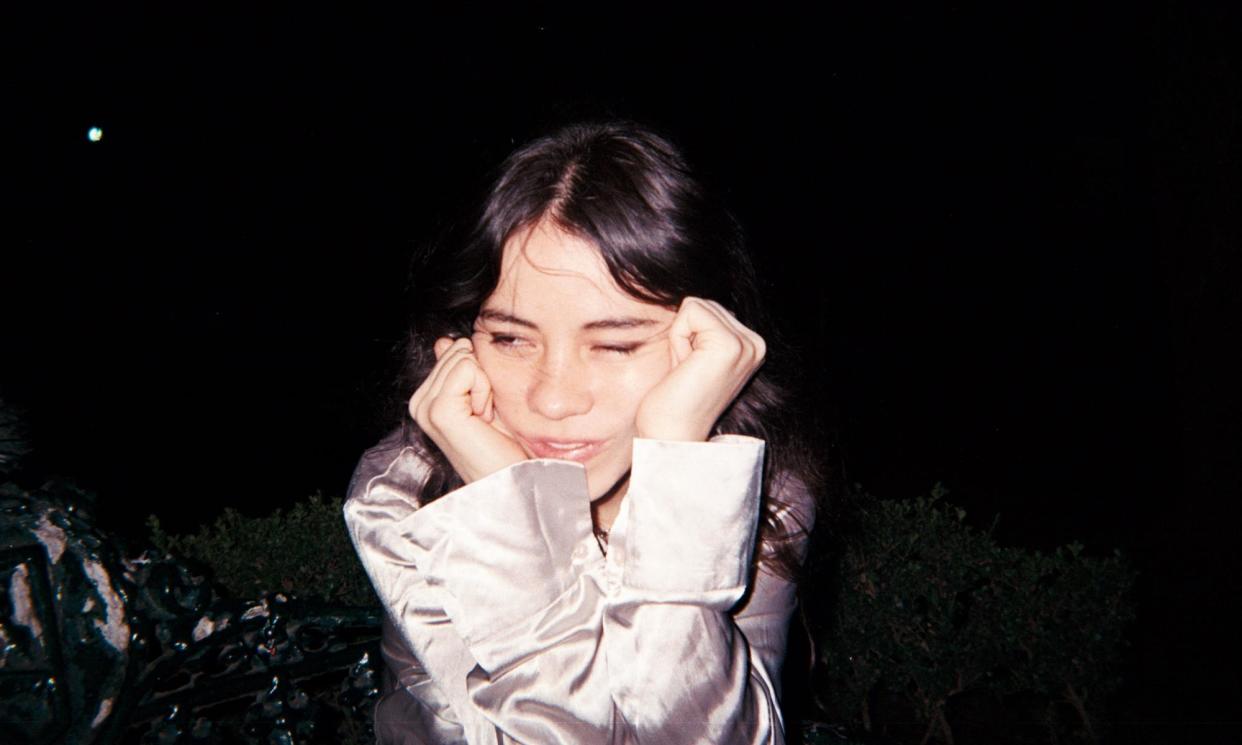Mabe Fratti: Sentir Que No Sabes review – rich, rewarding, spellbinding music from a true original

A recent magazine feature described Mabe Fratti as “the best avant garde pop cellist since Arthur Russell”. It’s hard to know whether to take that as laudatory superlative or faint praise. Russell has certainly seen his star rise in recent years: an overlooked figure at the time of his death in 1992, he’s posthumously become a very hip name to drop, an influence regularly cited for his boundary-free experimentation in everything from disco to modern classical to left-field pop. Equally, the world hasn’t exactly been bursting at the seams with avant garde pop cellists since Russell’s passing: it could just as easily mean that Fratti, a 32-year-old Guatemalan based in Mexico City, is No 2 in a field of two.
But listening to her fourth solo album – after last year’s breakout collaborations with improv group Amor Muere, and Titanic, her chamber duo with partner Héctor Tosta – you understand why Russell’s name is being invoked in the same breath. It’s not that Sentir Que No Sabes sounds like anything in Russell’s lauded oeuvre – it doesn’t – but then it doesn’t really sound like anything else either. Even after scanning Fratti’s inspirations, you struggle to come up with anything to pin her music to. Talk Talk circa Laughing Stock? Only in so far as the brass arrangements, the work of Tosta, lean more towards jazz than rock or pop. Cult French post-punk artist Lizzy Mercier Descloux? There’s certainly a disjointed funk feel to some of the rhythms, but you wouldn’t have volunteered her name without Fratti’s own prompting. The opening track seems to be named after Lenny Kravitz and features a distorted funk-rock bassline, but there the similarity seems to end. Under the circumstances, you might as well chuck Russell’s name into the ring: at least they share an instrument and a delightfully off-message approach to songwriting.
The latter aspect of what Fratti does feels important. It’s easy to read her press, conclude that she deals in austere experimentation and abstraction and decide on that basis whether her music is for you or not: phrases such as “electro-acoustic improv”, “collaboration with celebrated noise artist” and “experimental jazz” abound. There are scattered interludes when Sentir Que No Sabes sounds like what the advance publicity might lead you to expect, although the improvisation feels full-blooded and emotionally driven rather than an intellectual exercise. The drones of Elastica I give the impression that her cello is being heavily amplified, that she’s playing sparsely but at immense volume so that every movement of the strings is attended by squeals of feedback – with shades of John Cale’s treatment of his viola in the Velvet Underground. Elastica II and Kitana feature Fratti alternately scraping the instrument’s strings and hitting them like a cimbalom – or, if you prefer, one of Sonic Youth’s guitars – the former lending the sound a further layer of weirdness by manipulating the recording, slowing slightly, then speeding up.
But Fratti seems most interested in using her avant garde background as source material to make pop that’s completely devoid of cliches. Her songs are abundantly melodic and her melodies surprise without jarring. They travel smoothly in unexpected directions: Alarmas Olvidadas starts out darkly dramatic before spiralling euphorically upwards. She has a fantastic voice, high and airy, but with an intimacy and toughness that means she never sounds ethereal: she sounds as if she’s striding, rather than floating through the album’s improbable, shifting musical landscapes. Kravitz is punctuated by horns and piano that slide in and out of earshot, not discordant so much as based around intervals you never normally hear in pop. Márgen del Indice shifts from a thick, ominous, vaguely industrial sound and a rhythmic sprechgesang vocal into an utterly beautiful melody, accompanied only by drums and cello.
Related: ‘Doubt is exciting’: cellist Mabe Fratti on chaos, curiosity and climbing volcanoes
The English translations of her Spanish lyrics are pretty gnomic, but there are a lot of images of confusion, mostly pleasurable – “forget the science, execute the power to merge with your shadow” – which fits with the album’s sonic fabric. Fratti seems intent on warping the sound of her cello until you aren’t entirely clear if what you’re listening to is a cello: is that it, played in a way that makes it sound like fretless bass on Pantalla Azul, or providing the fuzzy low-end on Kravitz? Is it linked to that weird, unplaceable sound that keeps appearing in Quieras O No, which is a little reminiscent of a vocodered voice, but nothing like any vocodered effect you’ve heard before?
This is rich, rewarding, spellbinding music. It’s unequivocally original – whatever influences it has, it transcends in a way that makes you realise how much music in 2024 is the sum of its inspirations, reliant on reminding you of stuff you already know for its appeal. It’s also unequivocally fantastic. Without wishing to sound like the bearer of more inadvertently faint praise: if you only buy one pop album by an avant garde Guatemalan cellist this year, Sentir Que No Sabes should definitely be it.
• Sentir Que No Sabes is released on 28 June
This week Alexis listened to
Sam Morton – Broxtowe Girl
From her Richard Russell-assisted album, Daffodils and Dirt, Broxtowe Girl is spacey, slow and dubby, enlivened by a deeply unexpected appearance from a careworn-sounding Ali Campbell of UB40.

 Yahoo News
Yahoo News 
